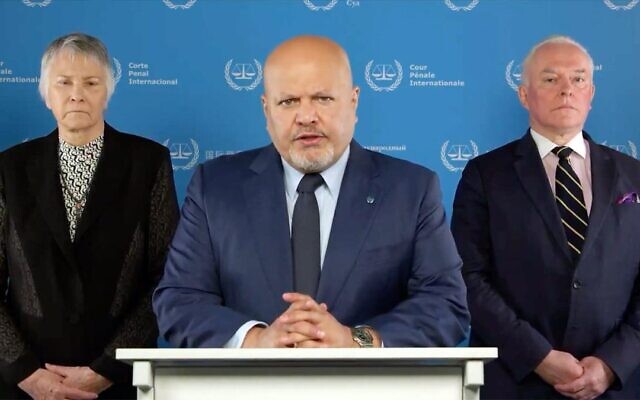



Finance Minister Bezalel Smotrich has extended a waiver that allows Israel’s banking system to cooperate with Palestinian banks in the West Bank despite the existence of sanctions, the minister’s spokesperson said on Sunday.
The waiver, which was due to expire at the end of June, allows Israeli banks to process shekel payments for services and salaries tied to the Palestinian Authority. Without it, the Palestinian economy would have taken a hit.
Smotrich extended the waiver by four months during a cabinet meeting on Thursday night, his spokesperson said.
It was reportedly part of a quid pro quo deal that saw the government legalize five Jewish outposts in the West Bank and sanction Palestinian Authority officials over Ramallah’s “push for unilateral recognition of a Palestinian state.”
The waiver extends the indemnity to Israeli banks that cooperated with Palestinian ones once Israel’s sanctions against the PA were passed.
United States Treasury Secretary Janet Yellen has said it was important to keep open the Israeli-Palestinian correspondent banking relationships to allow battered economies in the West Bank and the Gaza Strip to function.
The Palestinian economy relies heavily on this relationship to process transactions made in Israeli shekels. Some 53 billion shekels ($14 billion) were exchanged at Palestinian banks in 2023, according to official data.
The security cabinet on Thursday night voted to levy sanctions on PA officials, a decision urged by Smotrich, along with sanctions on PA officials.
The finance minister said that the sanctions were in response to Ranallah’s actions against Israel at the International Criminal Court, International Court of Justice and the UN, along with the decisions by three European countries to recognize a Palestinian state.
Neither the ICC’s pursuit of arrest warrants nor the genocide case against Israel at the ICJ were launched by the PA, but Ramallah has supported them.
Smotrich has previously threatened to cut off hundreds of millions of shekels in Palestinian tax revenue that Israel collects for the PA under the 1993 Oslo Accords, arguing that the portion of the funds that Ramallah uses to pay for services and employees in Gaza — roughly NIS 260 million ($73 million) monthly — could wind up in the hands of Hamas.
The terror group launched a thousands-strong October 7 assault on southern Israel that killed nearly 1,200 people and saw 251 taken hostage, sparking Israel’s retaliatory offensive in Gaza.
Smotrich’s move contributed to a financial crisis in the PA until an agreement was reached to transfer the funds via Norway, to ensure none of the funds would reach Hamas. Norway confirmed transferring the funds in February.
Israeli security forces in the West Bank cooperate with the PA on law enforcement, and Israel’s security chiefs have warned against moves that could destabilize the tenuous situation.
Israel has controlled the West Bank since the 1967 Six Day War, but has never annexed it. Successive governments say Israel is holding on to the territory in a temporary measure pending the resolution of the Israeli-Palestinian conflict.
Smotrich, whom the coalition agreements gave extended authority over civilian affairs in the West Bank, has recently vowed a “mega-dramatic” shift in how the West Bank is governed. He has previously called on the government to annex the territory if Ramallah did not pull support from international legal action against Israel.



